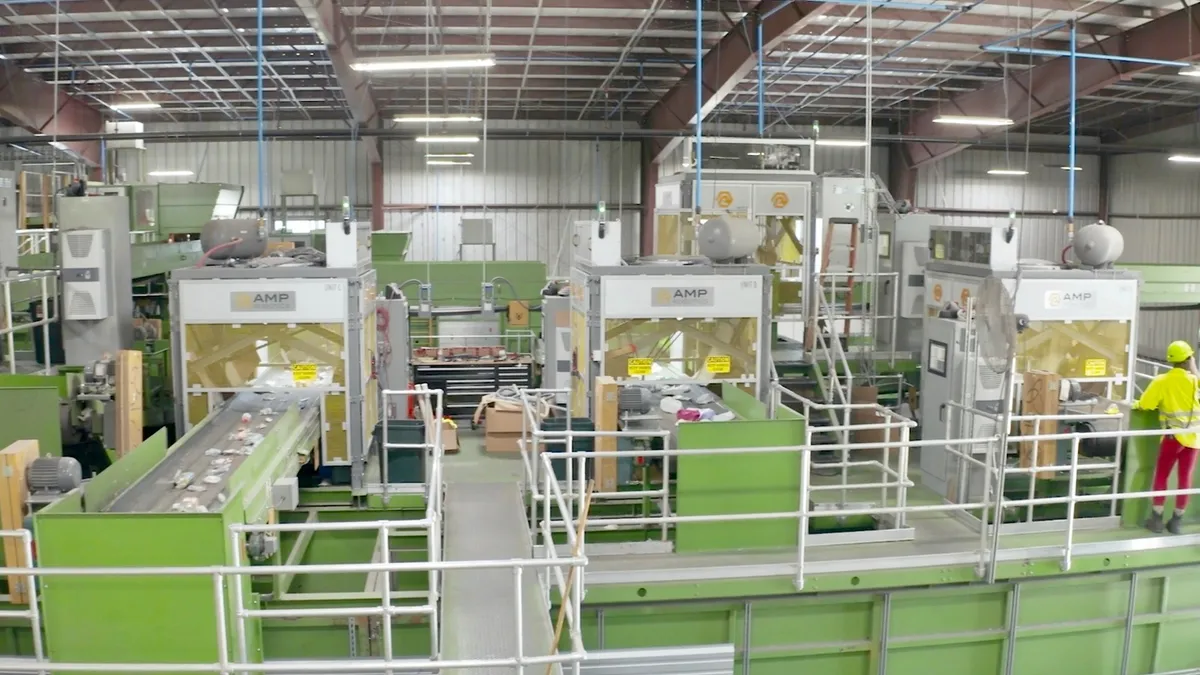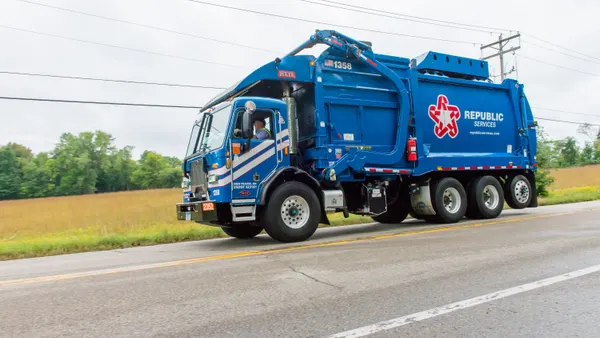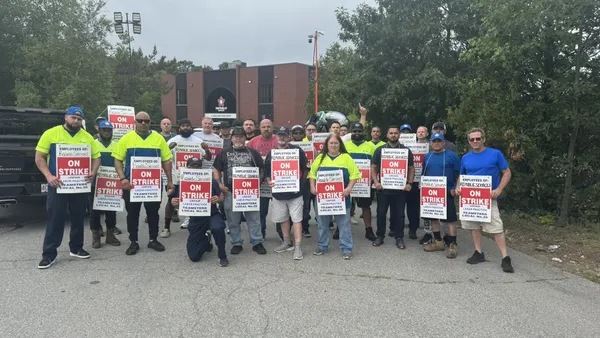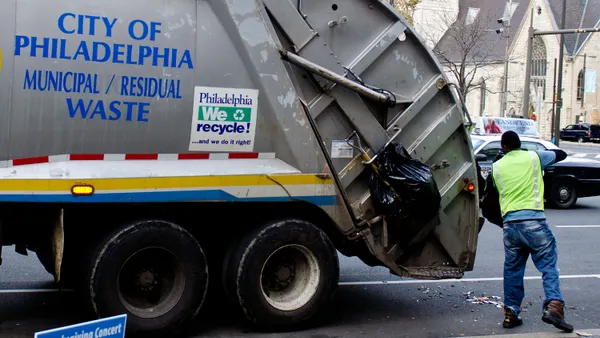Dive Brief:
- Texas-based Balcones Resources recently announced the acquisition of Single Stream Recyclers (SSR), which owns and operates a MRF in Sarasota, Florida. Financial terms were not disclosed. This marks the first deal by Balcones since the Closed Loop Leadership Fund acquired an 80% stake in it last fall.
- The 92,000-square-foot SSR MRF opened in 2018 to process residential and commercial material, with 50 tons per hour of capacity. SSR is known for installing 14 sorting units from AMP Robotics, among the biggest robotics deployments in any North American MRF.
- SSR founders John Hansen and Eric Konik will now focus on regional business development for Balcones, including the potential for secondary processing and new or upgraded sorting facilities. “There’s some old MRFs that exist in the Southeast and I think ultimately newer infrastructure in our industry is going to be necessary," said Hansen.
Dive Insight:
Last year's Balcones deal was notable on multiple fronts, with the family-owned company deciding to sell a majority stake after 25 years in business and Closed Loop Partners (CLP) making a new move into M&A through its private equity fund. The Texas-based company has MRFs in Austin, Dallas and Little Rock, Arkansas and has long been viewed as one of the most well-run standalone recycling companies in the United States.
At the time, CEO Kerry Getter said CLP's bid felt different from prior inquiries by vertically-integrated waste and recycling companies because it offered the chance to be part of a more focused circular economy strategy. Hansen, whose career has included multiple sales to larger companies, had a similar feeling about selling to Balcones. It's part of the reason he decided to stay on, describing the opportunity to work on circular economy efforts as "the last step in my career."
Maite Quinn-Richards, a managing director at CLP, said the initial conversations came from collaborating with SSR on a polypropylene study more than a year ago. While Quinn-Richards noted “there’s capacity in the [SSR] facility to bring in more tons," she said the real opportunities lie in the broader region. Texas, Florida and possibly the Carolinas are all areas being considered for expansion with CLP's backing.
Quinn-Richards declined to to discuss further details about what that could look like, citing pending announcements. Generally speaking, she said the goal was not just to acquire more MRF capacity but also pursue a type of vertical integration less commonly seen in the U.S. waste and recycling industry.
“Balcones is a company that does not own a landfill and they strive towards getting the most out of the recycling stream," she said. “We’re thinking vertical integration, but vertical integration into products."
Balcones COO Joaquin Mariel similarly noted the SSR deal's potential to help "scale modern, innovative recycling infrastructure to build circular supply chains" in a statement and this fits into CLP's ongoing mission. Since launching in 2014, the New York-based firm has invested in at least 45 companies with funding from major brands seeking to improve their own sustainability footprints on multiple fronts.
Many of these brands now have targets to boost their use of recycled content, and make packaging more easily recyclable, by 2025 or other future dates. Many also have footprints in the Southeast, a region long recognized in recycling circles for its untapped potential. According to a study by the Southeast Recycling Development Council, at least 360 regional manufacturers with more than $40 billion in annual sales were seeking recycled feedstock for consumer goods as of 2016. That demand has only increased since.
This also comes as the Southeast is seeing ongoing population growth, which in turn could help provide more feedstock for manufacturing. Hansen believes the region's regulatory environment is also well-suited to pursue these plans, showing they can be done without the types of mandatory policies being discussed in other states.
“You get a circular economy in Florida and I think it can be reproduced in a lot of different areas," he said, as one example.
Hansen said secondary processing such as plastic washing facilities could be one option that Balcones pursues and agreed the integrated approach by Pratt Industries was a fair analogy for its vision. The global packaging company known for its paper mills also has multiple MRFs in the region, meaning "they’re able to take that product and finish the cycle." While this model has not become the norm for U.S. recycling infrastructure, Hansen believes the recent move to refocus on domestic market development will mark a turning point for the industry's circular economy efforts.
“It was very easy to ship stuff to China and to other countries, especially the fiber markets, and get a good value out of them," he said. “We're all understanding that that model is pretty much disappearing."











